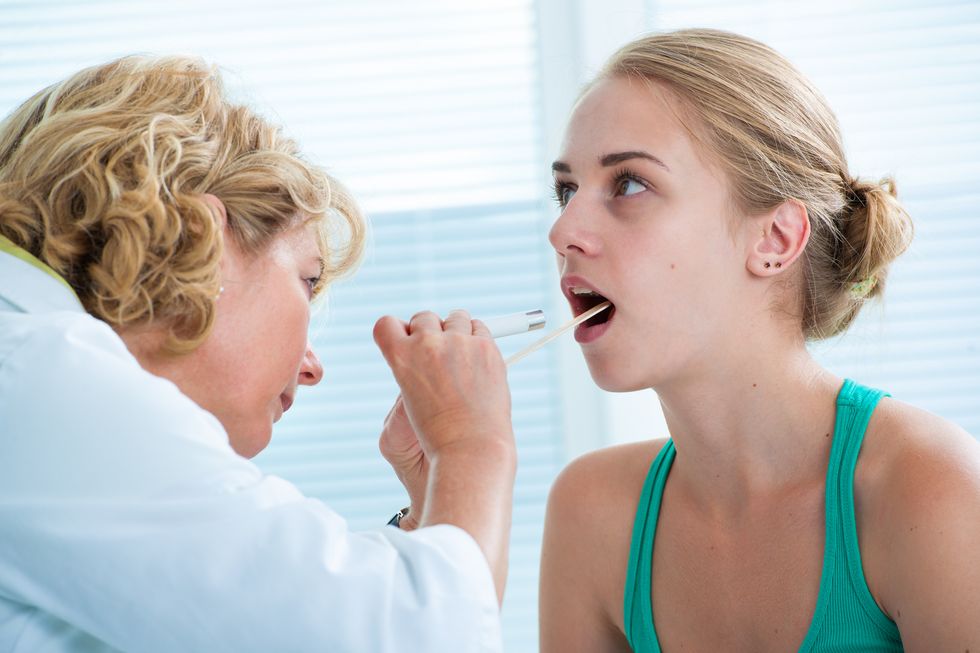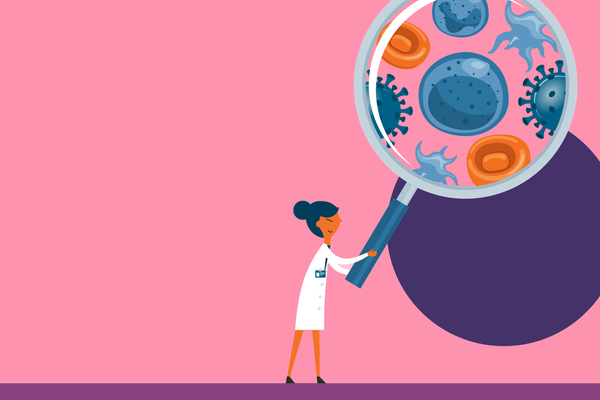You've likely heard mono referred to by its nickname—the kissing disease. The viruses that cause mononucleosis (aka mono) are transmitted through bodily fluids, usually saliva. So, yes, it is possible to get mono through kissing.
But you can also get it other ways—through a cough or sneeze or by sharing utensils, a glass, a water bottle or a toothbrush with someone who has it. Believe it or not, mono isn't as contagious as the common cold.
Signs and symptoms
Mono is often confused with the flu or strep throat because the symptoms are similar. Young children usually have few symptoms, so the infection often goes unrecognized.
The time from when you get the infection and when you start to have symptoms—the incubation period—is usually four to six weeks, though it may be shorter in young kids, says the Mayo Clinic.
How do you know if you or your child has mono? Some signs of mono include:
fatigue, often extreme
headache
sore throat (sometimes diagnosed as strep throat, however, antibiotics prescribed for strep won't cure mono and may cause a rash)
fever
swollen tonsils
body aches
swollen, soft spleen (a small organ under the left ribcage near the stomach that helps filter blood cells and fight infection)
rash
swollen lymph nodes in armpits and neck
Be aware that not everyone has all these symptoms, and some people may have additional symptoms. Your child may only be tired or have a sore throat, for example, which can delay a diagnosis of mono.
Risk factors
High school and college-age kids are at highest risk for clinical illness due to mono. The infection usually shows some symptoms by adulthood, so it's less common to experience mono as an adult. But, some adults do have a higher risk than others, including:
medical professionals
caregivers
those who take medications that suppress the immune system
anyone who comes in close contact with large numbers of people
Causes
The most common cause of mono is the Epstein-Barr virus, which is part of the herpes virus family. Other viruses can cause mono, though it's rare. Your doctor can figure out if you have mono by taking your illness history, doing a physical exam and sometimes obtaining blood tests, though blood tests are not reliable during the first few days of the illness.
Fortunately, mono isn't usually serious. Be on the lookout for certain complications like an enlarged spleen. In extreme cases, your spleen may rupture. You'll have sudden, sharp pain on the left side of your abdomen and should seek immediate medical attention. You also may have liver problems causing jaundice, where your skin and the whites of your eyes turn yellow, or other less common complications.
It's difficult to prevent mono. Healthy people who've been infected with the Epstein-Barr virus in the past can carry and intermittently spread it for decades. No vaccine is available to prevent mono. You can reduce your chances of getting mono by not sharing food or drinks and washing your hands frequently.
Treatment
Although antibiotics can be used to treat some other forms of a sore throat—such as strep throat—they won't work for treating mono because it's caused by a virus. In fact, when you have mono, some antibiotics can even cause a rash. Learn more about overusing antibiotics.
Mono can leave you feeling tired or weak for a few weeks—even a few months. Your best bet to be on the path to recovery? Get plenty of rest. Yes, you may have to miss class or work. But you must be patient as your body fights infection.
Stay hydrated by drinking plenty of beverages and eating soups. Take over-the-counter pain relievers like ibuprofen and acetaminophen to help with pain and fever. Do not give aspirin-containing products to children or teenagers. Gargle with salt water several times a day to relieve a sore throat. Mix ½ teaspoon salt in eight ounces of warm water.
Just take it slow. If you go back to your normal schedule too soon, you can have a relapse of your symptoms. You may need to gradually build up your activity level as you rebuild your strength.
Due to the risk of rupturing your spleen avoid vigorous activity, heavy lifting and contact sports while you have mono symptoms. Be sure to ask your health care provider how long you should wait before returning to your usual activities.







